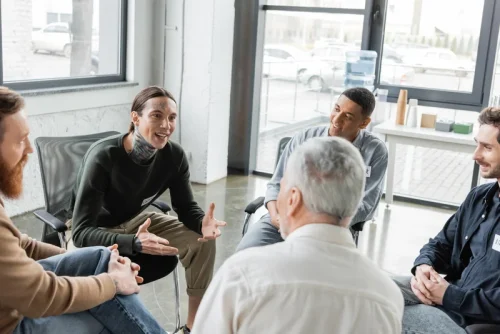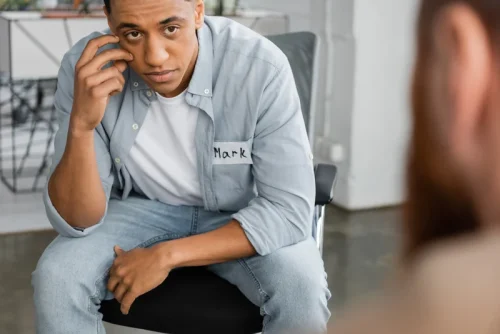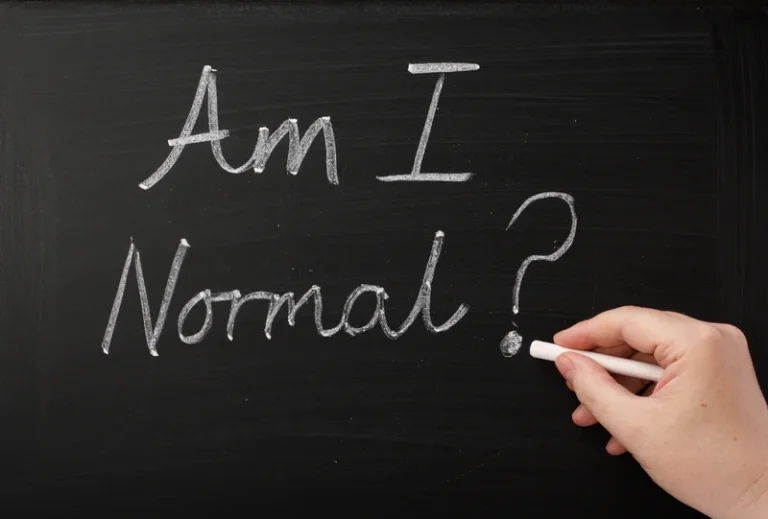
For example, if you caught a whiff of marijuana or saw people using, remove yourself from that environment. It’s hard to resist backsliding when all you can think about is not getting to smoke weed. What’s easier, says Dr. Streem, is concentrating on the new things you’re doing to occupy your mind and time. You can also find a supportive community through group programs like Marijuana Anonymous. Members use a structured, 12-step process for quitting and meet regularly to encourage one another.
Anxiety
There are multiple treatments available, like talk therapy, support groups, and even medication when necessary for underlying issues. Finding others who are dealing with the same issues as you can be validating, and you can learn from one another about different ways to cope. Marijuana Anonymous is one such support group based on the principles of Alcoholics Anonymous. CBT helps people identify why they use, develop relapse prevention and coping skills, and come up with more effective behaviors.
- Defeat weed addiction with our comprehensive guide on withdrawal, treatment options, and prevention strategies.
- Marijuana is the most commonly used illegal drug during pregnancy.
- A series of large, longitudinal studies also shows a link between marijuana and the development of psychosis.
- Simple talk therapy can help you work on developing self-compassion and feel more supported throughout the quitting process.
Addiction and Mental Health Resources

The detoxification process is the first step in the path to recovery from marijuana addiction. It involves the elimination of THC and other toxins from the body. In addition to these physical and psychological symptoms, cognitive impairment may also occur due to cannabis use. These symptoms may include brain fog, lowered motivation, difficulty with learning, and attention issues. These symptoms are typically reversible, although using products with higher THC content may increase the risk of experiencing cognitive symptoms. Moreover, withdrawal symptoms from marijuana can also include physical symptoms like sweating, shaking, fever, and headaches.

What to Expect During Marijuana Detox and Rehab
The supervision and support of treatment can decrease the likelihood of you relapsing. If you or someone you love struggles to quit marijuana use on your own, have a cannabis use disorder, or suffer from marijuana dependence, cannabis-specific treatment may be the best option. Start by talking to your doctor or mental health professional about your treatment options. Some research also suggests that exercise may help complement other treatments for cannabis use disorder. Researchers indicate that since marijuana use can affect the systems that regulate stress and rewards, exercise might help reduce withdrawal symptoms, aid in stress management, and reduce drug cravings. Symptoms of withdrawal can be unpleasant and can derail your efforts to stop smoking weed.
Withdrawal and Detoxification
Today, hemp fiber is used to create concrete-like blocks for construction projects, bioplastics, jewelry and biofuels. In colonial America, hemp production was required by English rule. At that time, hemp plants were low in tetrahydrocannabinol (THC), the active component of cannabis, and crops were valued for their role in industry. Unlike recreational marijuana users, people who misuse the drug will consume excessive amounts to get high. They also use it more often, and find it difficult to pass off opportunities to use.
Quitting Cold Turkey: Tips to Quitting
These feelings can often be used to bring about the positive changes you want to make in your life. They can also be signs that additional help may be needed to ease or resolve your depressive symptoms. By Toketemu OhwovorioleToketemu has been multimedia storyteller for the last four years. Her expertise focuses primarily on mental wellness and women’s health topics. People who have a long history of using marijuana are, unfortunately, more likely to relapse during a detox. The length is marijuana addictive of treatment depends on several factors, including your needs, level of care, substance used, severity of your disorder, other co-occurring conditions, among other things.

However, if the use is becoming a need or you’re experiencing negative consequences because of it, it may be a problem. If you or someone you love may be experiencing marijuana abuse or addiction, talk with a trusted healthcare professional. They will work with you to get properly evaluated and the appropriate treatment.

Medications
Behavioral therapies help people in drug addiction treatment modify their attitudes and behaviors related to drug use. As a result, patients are able to handle stressful situations and various triggers that might cause another relapse. Behavioral therapies can also enhance the effectiveness of medications and help people remain in treatment longer.

Leave a Reply
Want to join the discussion?Feel free to contribute!